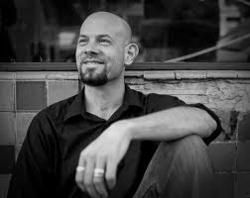Podcast: Play in new window | Download | Embed
Subscribe: RSS
Listen in iTunes
It’s the Seminary Dropout year end review. For this episode I’ve asked my friend Chris Morton to join to talk about the first year of Seminary Dropout. We talk about just a few of the great guests I’ve had on the show; Jamie Wright, Tony Campolo, Grace Biskie, and Scot McKnight.
First, your co-host…
Chris Morton lives in Austin, Texas, where he is a freelance writer and helping start a new church community.
Chris’s passion is to connect people, both to Jesus and to each other, this has led him to help start a church community called Austin Mustard Seed, where he serves as Community Developer. Chris graduated from Fuller Theological Seminary. Chances are good that as you’re reading this, he’s sitting in a coffee shop.
In addition to the years recap, I also check in with my friend Tony Kriz. Tony appeared on Seminary Dropout 1 as my first ever guest so I thought it would be fitting to check back in with him a year later to see what he’s up to and thank him for agreeing to be on the show when I was just a guy was going to eventually have a podcast. Be sure to listen as Tony give Seminary Dropout its first ever EXCLUSIVE!



The takeaway from the Screwtape Letters bothers me. If “The Devil” wants us to keep conflict close but compassion far away, then what is the opposite of that? It seems to be the way our world is currently constructed: We smile at each other and find like-minded groups to be with, but on the other side of the world bombs are dropping in our name without us having to own it in any tangible way.
Not sure either option sounds good.
I don’t think you understood Tony’s take away.
Let me try again. The demon wants humans to keep their malice at home, but their compassion far away so that it can seem a fantasy. I think that Tony is taking away that we need our compassion right here at home,which is certainly admirable. I still contend that the opposite of what the devil wants is problematic as well. It’s its own kind of illusion to be compassionate to those around you while ignoring the plight of those far away. Their suffering is no less real. I know Tony (or you or I) don’t want malice anywhere in the world, but I’m not sure I see the point in juxtaposing close and far away when it comes to compassion.
My most generous read: Tony thinks compassion far away can’t substitute for compassion at home. I’d just say, the opposite is true as well.
Rodney Dean I understood Tony’s takeaway differently. It isn’t that we focus our compassion squarely on people and situations closer to home, but that when we focus our compassion disproportionately on those suffering afar while neglecting those who are close at hand, something is off balance.
I commented on this briefly on the original Scot McKnight thread, citing churches who will lavish generous support onto humanitarian efforts and missions overseas, or even local schools or homeless shelters (and often celebrate internally in regard to how great they are, but that’s another issue), but when someone within the church community loses their job and can’t make their mortgage payment or other bills, the response is often little more than “I’ll pray for you.”
I love the way neoquakerism has faced this situation head-on, and although I’m still not entirely sure what McKnight really meant in the original interview, I feel inclined to agree with some part of it, at least in the sense that I understand it within the community-centered priorities of neoquakerism.
Good stuff, JR Buckley. I think that idea of balance is great. My home church over the last two years did one big mission focused on water wells in Africa, but then another one on helping a non-profit furnish apartments for people transitioning off the streets. I’m not saying we have to split things 50/50, but there’s certainly value in addressing the needs of all God’s children, at home and abroad.